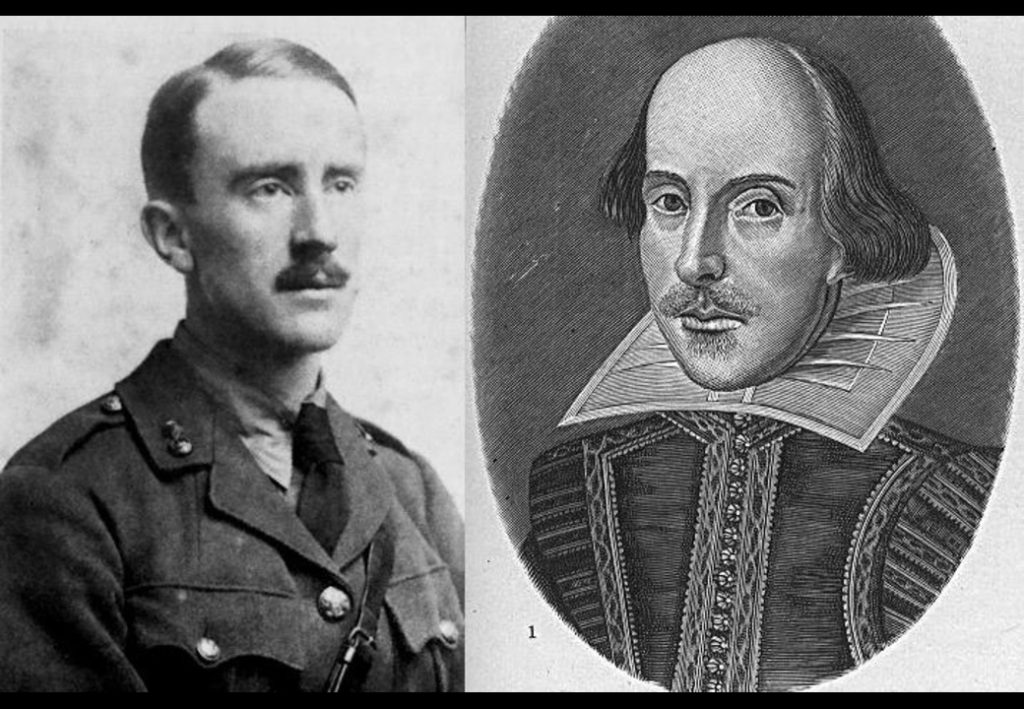There is little doubt that two of the most famous writers in the Western World are William Shakespeare and John Ronald Reuel Tolkien aka J. R. R. Tolkien. Their works have shaped many modern movies, books, and TV shows that we enjoy today. But they had also taken influence from each other as many ideas in Lord of the Rings were pulled out from Shakespeare’s plays. But influence does not mean admiration as he approaches Macbeth with a critical eye, recognizing its flaws and shortcomings and trying to improve upon them. this could be seen with the prophecy of Glorfindel about the Witch-king.
J. R. R. Tolkien’s Disappointment with Macbeth
Like many students, Tolkien studied the works of Macbeth which played an influence in his works. One play that left a huge impression on the young Tolkien was Macbeth. This tragic tale of ambition, betrayal, and the supernatural would weave into Tolkien’s imagination, leaving an indelible mark on his literary journey.
Many themes and elements in Macbeth offer a parallel to The Lord of the Rings. These include wicked witches and prophecies. He also explores the themes of powers corrupting influence. This is most clearly seen with the Witch-King of Agamar, a character allegedly influenced by Macbeth.
Both represent the ideas of a good king gone bad as they forsake all their duties in exchange for power, with Macbeth becoming paranoid and slaying those around him while the witch-king sells his will for more power.
But that doesn’t mean that Tolkien enjoyed everything about Macbeth. He was very disappointed at the prophecy of the play.
One section of that prophecy spoke of how Macbeth “shall never vanquish be until the Great Birnam Wood to high Dunsinane Hill shall come against him”. This comes true when soldiers disguise themselves with foliage from Birnam Wood to create the illusion of an army of trees marching against Macbeth.
While a clever twist, Tolkien found himself disappointed with this ending and created the scene of the Ents coming to life to create a more exciting scene that fit his narrative.
That wasn’t the only scene that took influence from Macbeth’s prophecy. The death of King Macbeth was another major disappointment for Tolkien who sought to change it in his work.
The prophecy states that “none of woman born Shall harm Macbeth” just as the Witch King claims that “no living man may hinder [him]”.
Yet in Macbeth, his killer Lord Macduff Macduff, born via caesarean section, defeats him. Similarly, The Witch King, immune to mortal wounds, is slain by Eowyn, a woman. Tolkien’s solution, rooted in Middle Earth lore, contrasts Shakespeare’s cop-out, as a hobbit’s intervention breaks Sauron’s magic.
As we continue to write, the works today are built on the backs of those who had come before them just as Tolkien studied Shakespeare. But it is also important to remember that while we should admire these works, we must also take the time to be critical of works and be ready to infuse them with new ideas, beliefs, and perspectives.
“But no living man am I! You look upon a woman. Éowyn I am, Éomund’s daughter. You stand between me and my lord and kin. Begone, if you be not deathless! For living or dark undead, I will smite you, if you touch him.”
― J.R.R. Tolkien, Author

If you want to create vintage letters with your own or other people’s famous lines, our Vintage Letter service allows you to make and send them here.

